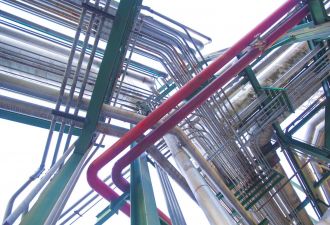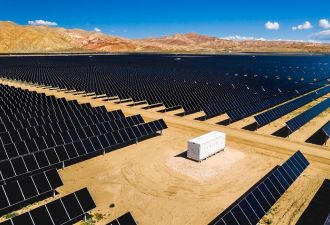SAN FRANCISCO --- Soltas isn’t a franchise operation. And it’s not a centralized company.
It’s more like a cross between Amway and a federation of mutant superheroes. Either way, if the solar contractor/project developer/power provider can pull off its slated plans, it could become a prominent name in the market for commercial rooftop solar.
Founded by Andrew Barron Worden at Barron Partners, the company is buying majority stakes -- typically around 60 percent -- in prominent commercial solar installers in select states. It already has lined up partners in Tennessee, Connecticut and New Jersey, and the future might bring partners in Nevada, California, Arizona and/or New Mexico.
Once under the Soltas umbrella, these installers then seek out commercial rooftop opportunities, erect them and then sell the power back to the building owner or some other party under a power purchase agreement.
In turn, Soltas is able to quickly move into new markets with a trusted, local source. Being genuinely established locally is one of the key tenets of the business, Worden emphasizes. Many medium-sized solar projects aren’t landed through bids. A person gets intrigued about putting solar on their roof, they call a friend and the deal is done.
“If we have to compete against someone, I don’t do it,” he said during a chat at Intersolar last week. “You want to go where there is not an RFP process,” he said.
From the customer side of things, “If you have holes in your roof, you know who to call,” he added. Choice Solar, the Tennessee branch that used to be known as Choice Mechanical, just won a larger project in Smyrna, Tennessee, beating out a company associated with the ex-governor.
The national-local concept has been tried in many businesses, and in many instances, it fails. The more successful local branches invariably get into arguments with the less profitable outfits. Group buying discounts can effectively limit the range of products and services that a given outlet can provide. Centralized corporate offices can become black holes filled with management gurus and strategy experts.
All true, says Worden. Soltas will avoid those dangers by growing slow and being cheap. “I have to thank my mother, who was Scottish,” he says. These local contractors are already cash-flow positive. Becoming part of the larger organization will allow them to both expand their services (by acting as power providers) and, ideally, to cut their costs.
If anything, Worden has a track record when it comes to building businesses. As a kid, he and his younger brother James started making money by collecting cans for recycling. They took $400 in profits and started a landscaping business. The profits from that paid for his tuition to Harvard and his brother's tuition at MIT.
James went on to found inverter maker Solectria Renewables. Started with $500,000 and no VC funds, Solectria is now one of the faster growing names in inverters.
Andrew, meanwhile, founded an optical network service company. It was booming until investors tried to expand to too many cities at once.
So why should a local installer join? By becoming part of Soltas, the local installers get to take advantage of the economies of scale of being part of a larger group. Marketing, sales, IT, PR and other administrative functions are centralized across the national network.
More importantly, the installers can now get capital and loans at better rates than in the past, as well as take advantage of group buying power. (Worden says it can get 5 percent to 7 percent terms on commercial rooftop projects.) Barron Partners owns a 22 percent stake in CNPV Power, a Chinese panel maker, which provides panels to the network at somewhat attractive rates. Solectria provides inverters to projects at slightly below the prices from other vendors. Barron has an investment in a tracking company that also participates.
Still, approximately 25 percent of the components sourced by the installers are from outside the network.
“We don’t want to be too incestuous,” he said.
As the company grows, the national-local structure will be transformed. Right now, the local installers are owned by holding companies. In the future, local branch ownership will be transmogrified into proportionate shares of the overall company.
Within two years, Soltas (a combination of 'solar' and the Harvard motto Veritas) hopes to be able to report $200 million in EBIDA income and carry a valuation of $2 billion, ideally the result of installing 1 gigawatt worth of solar systems. It also wants to hold an IPO.



